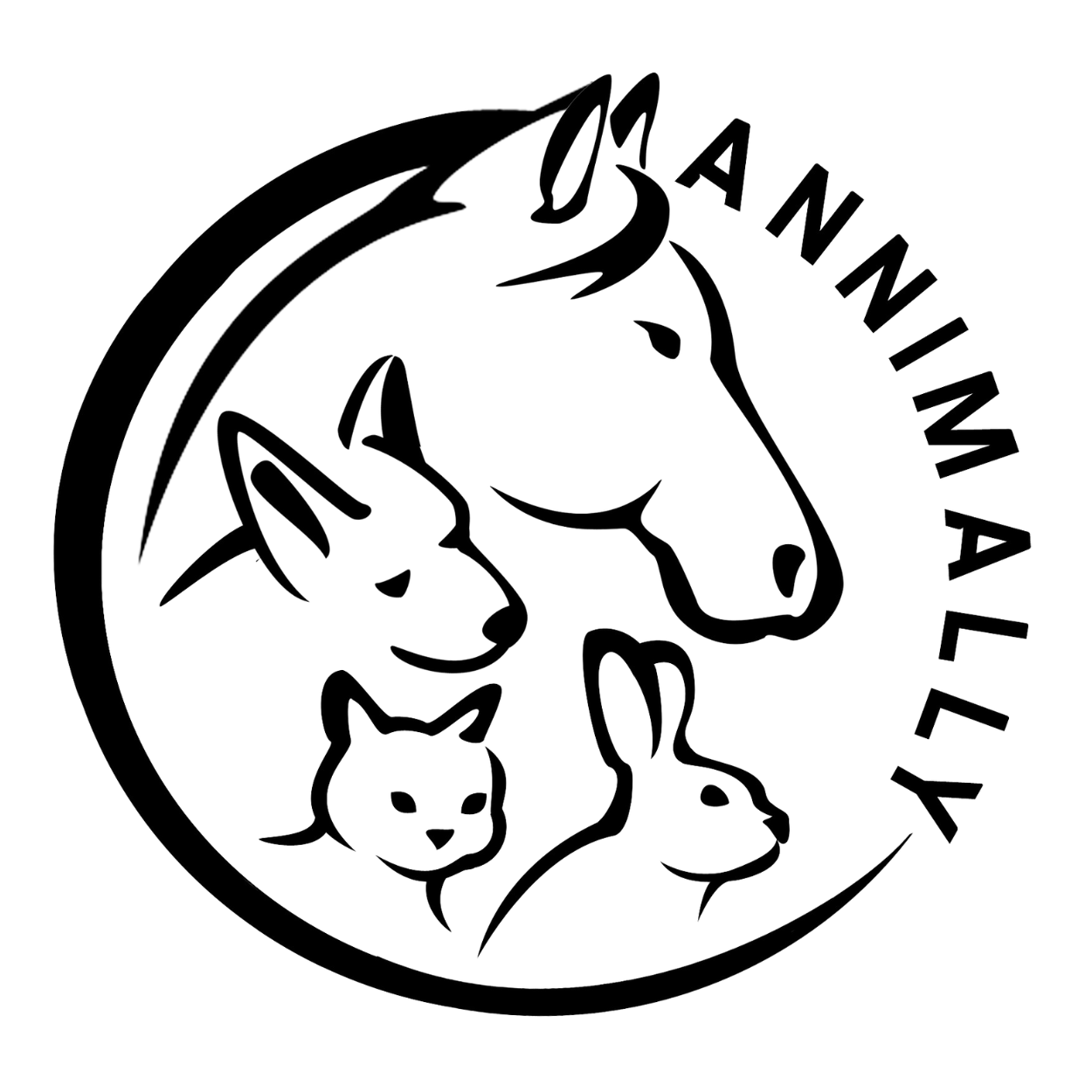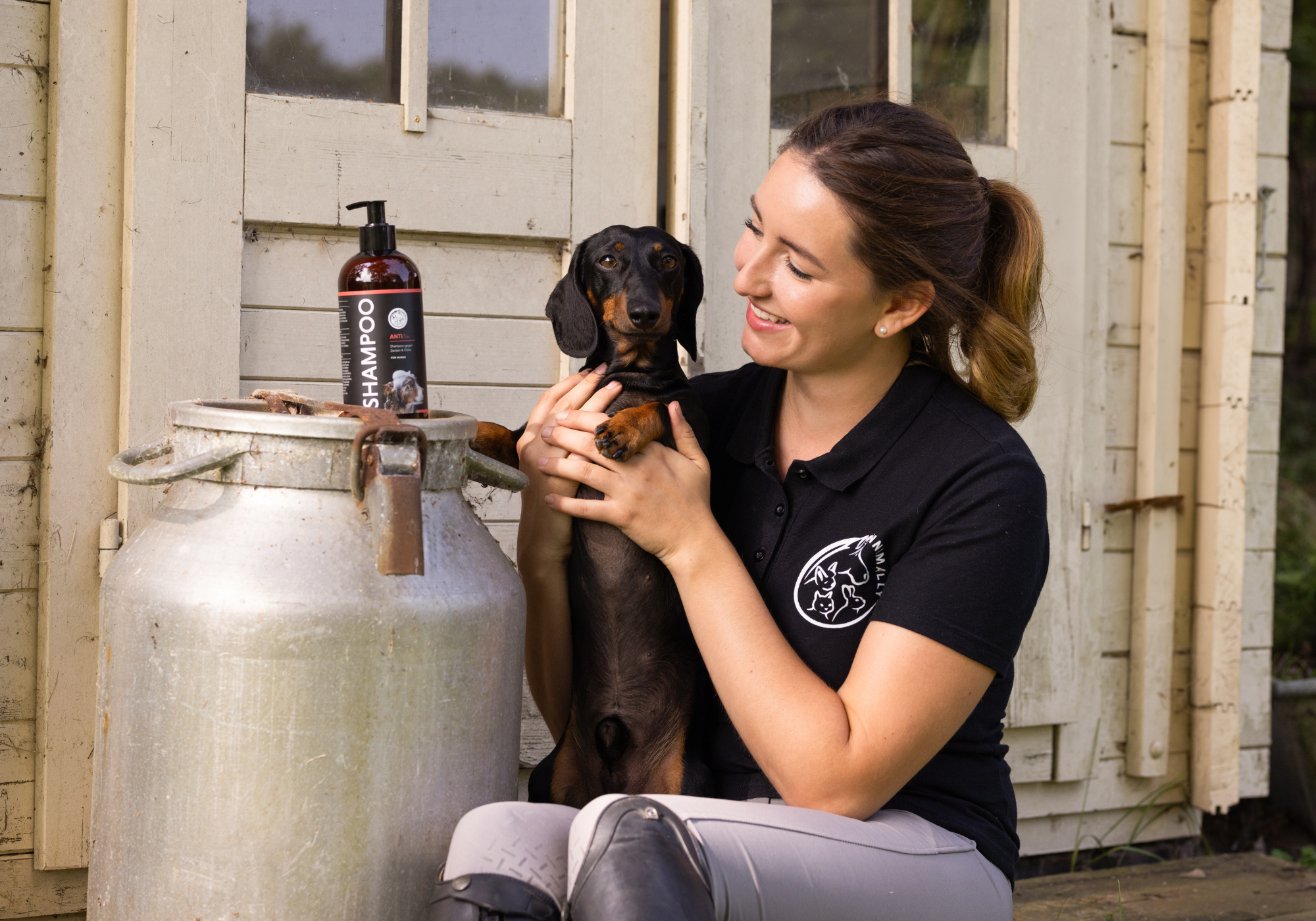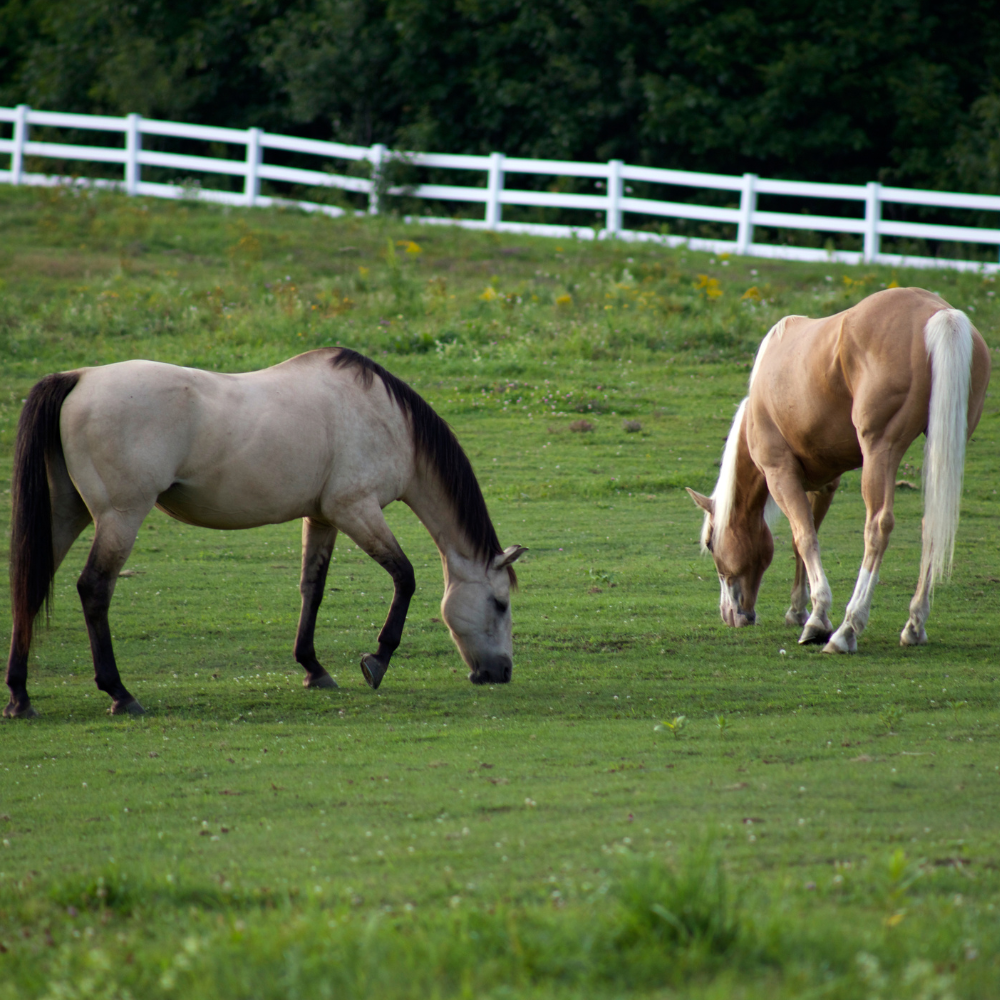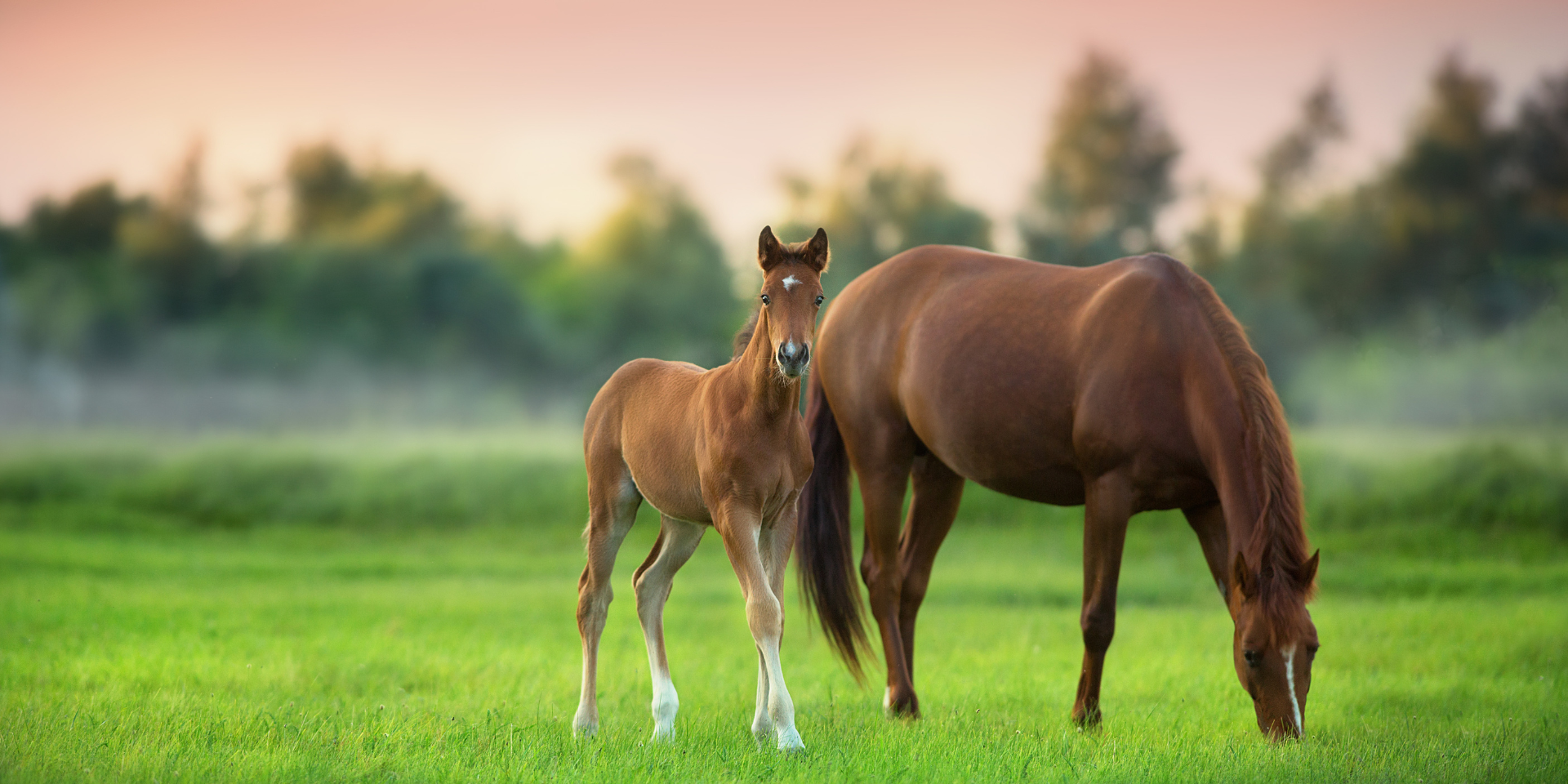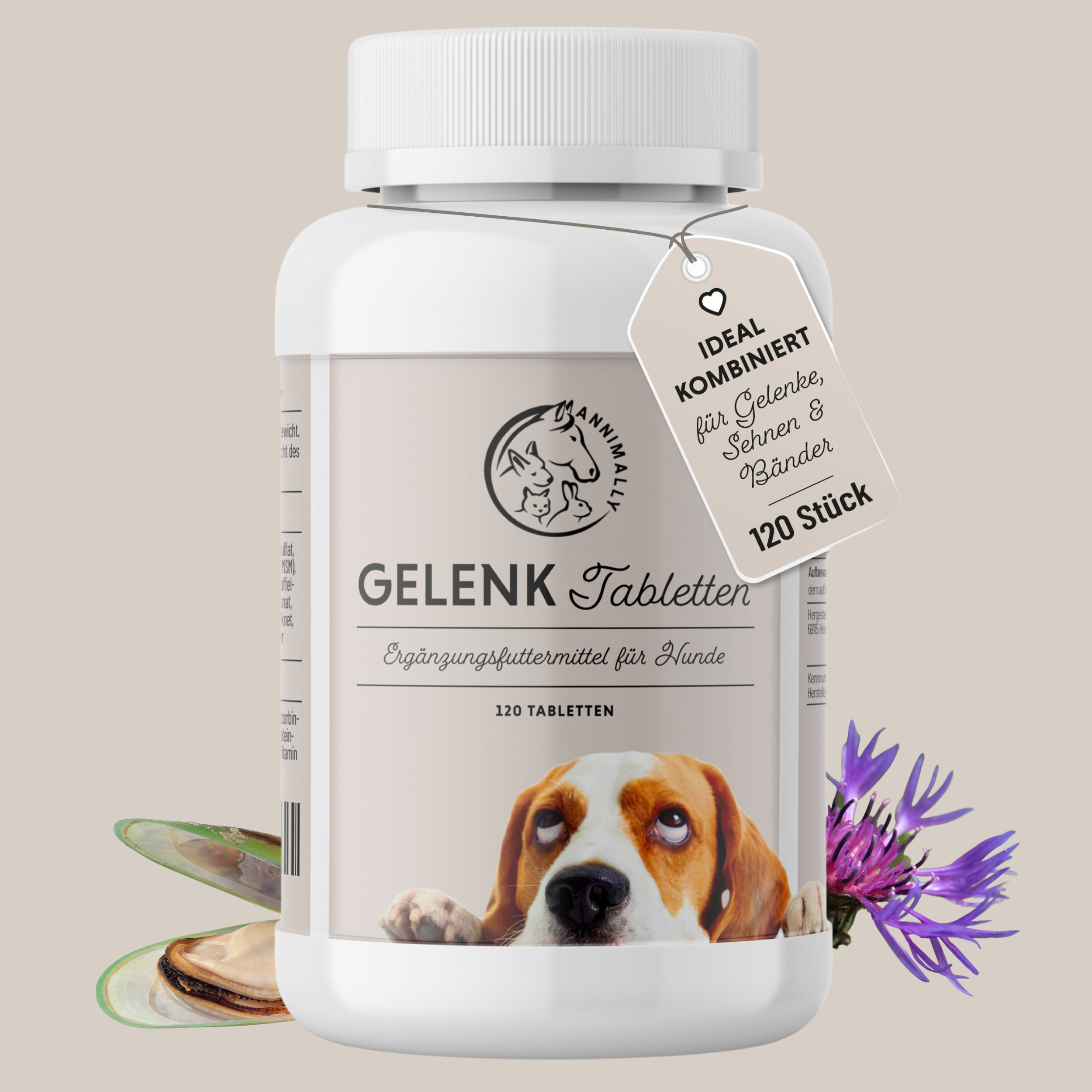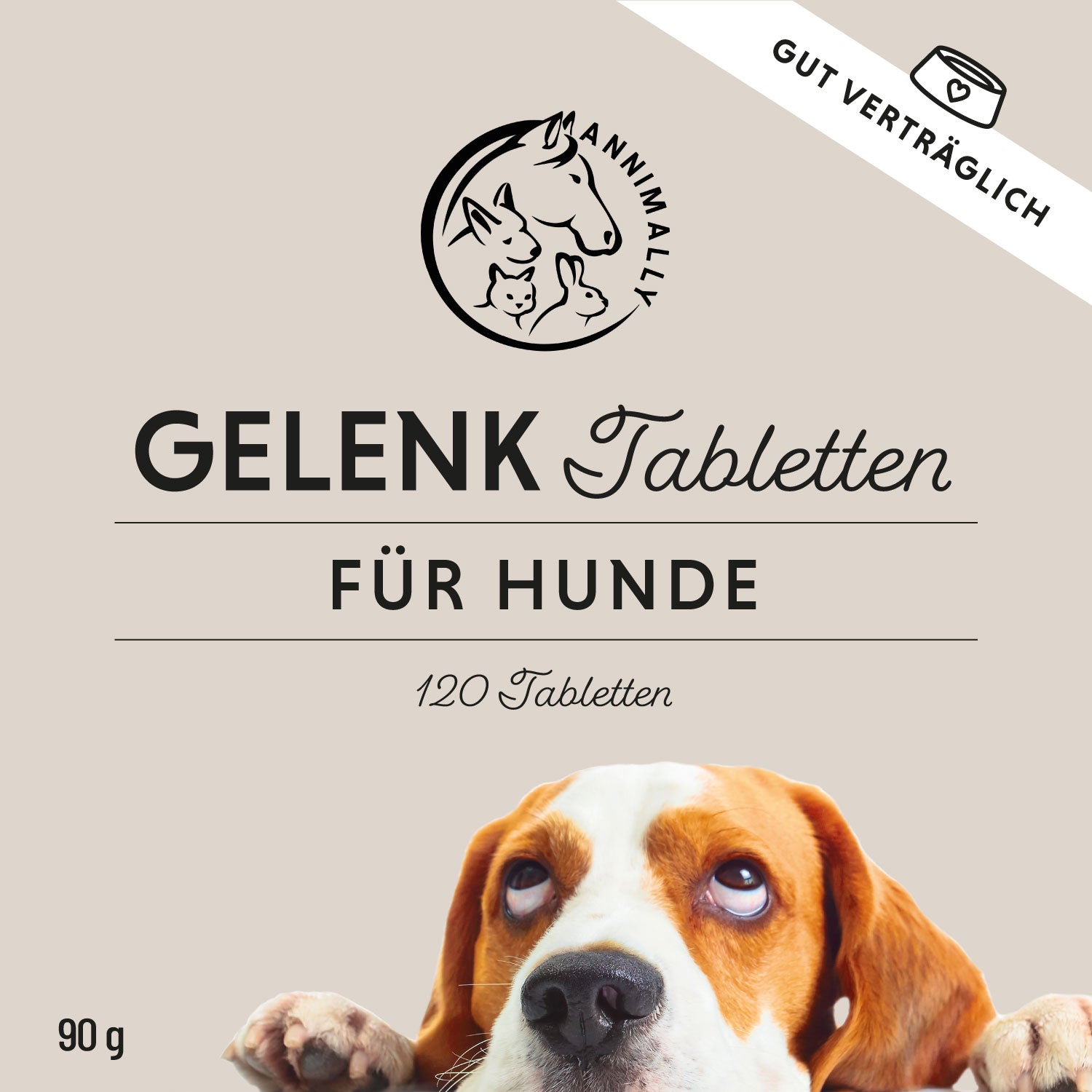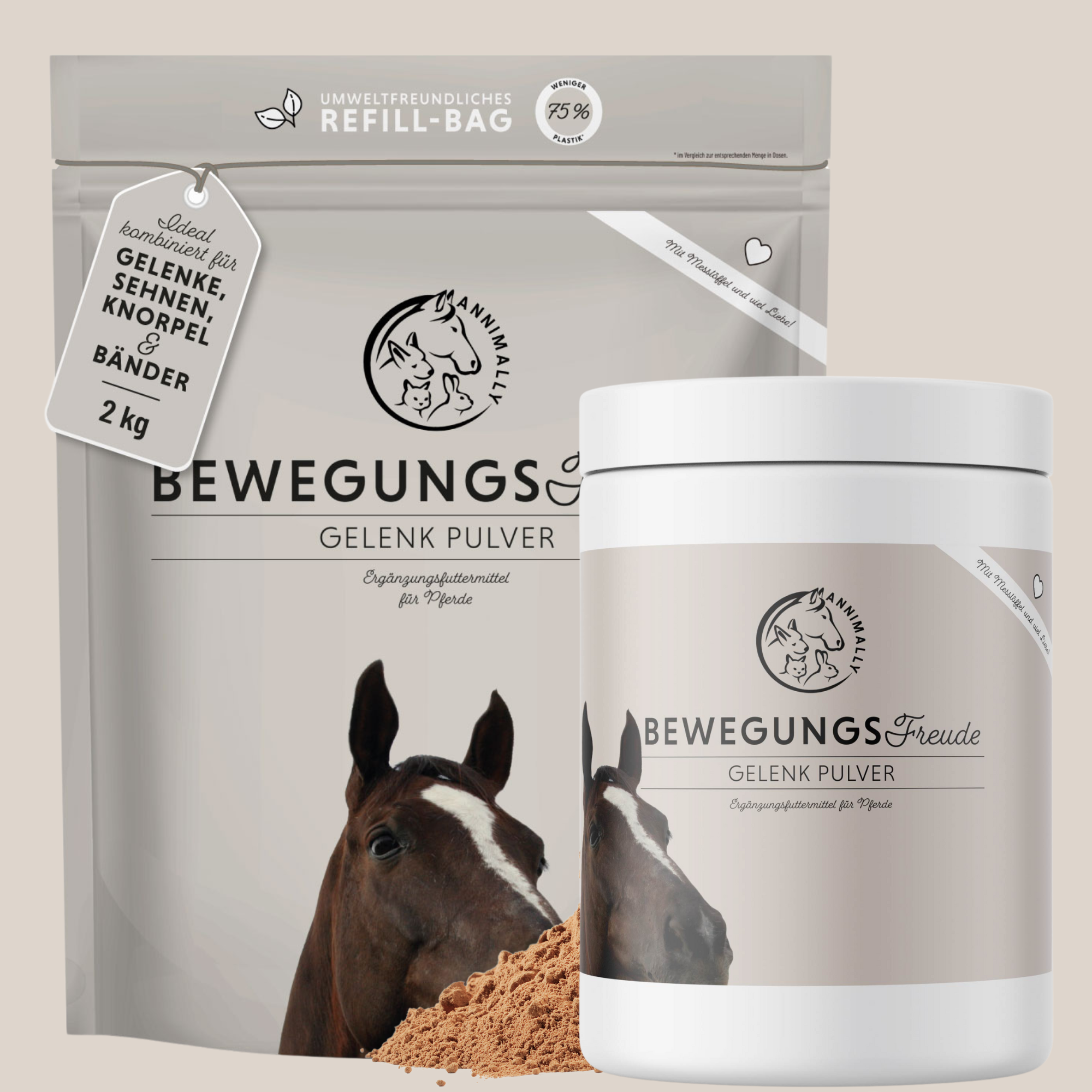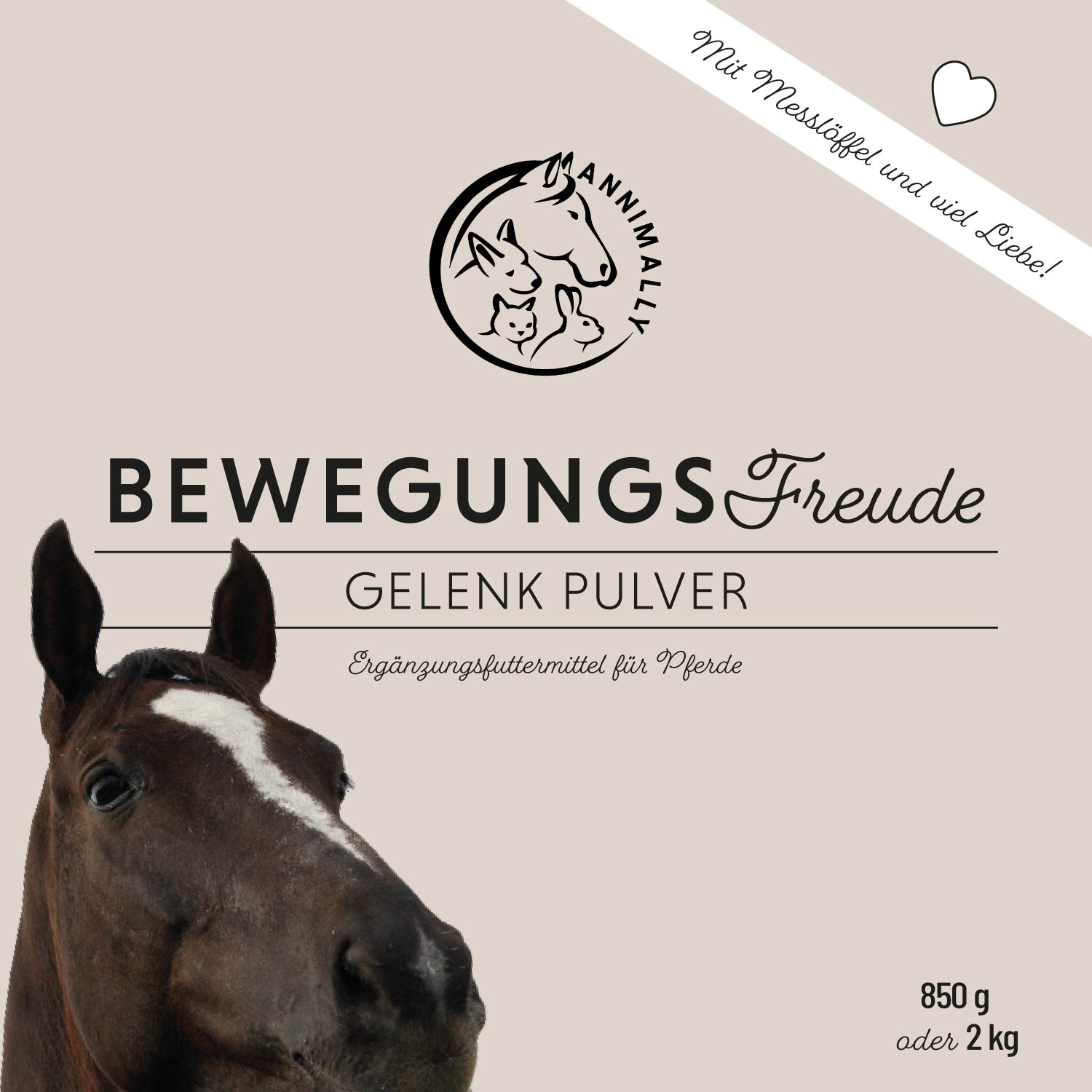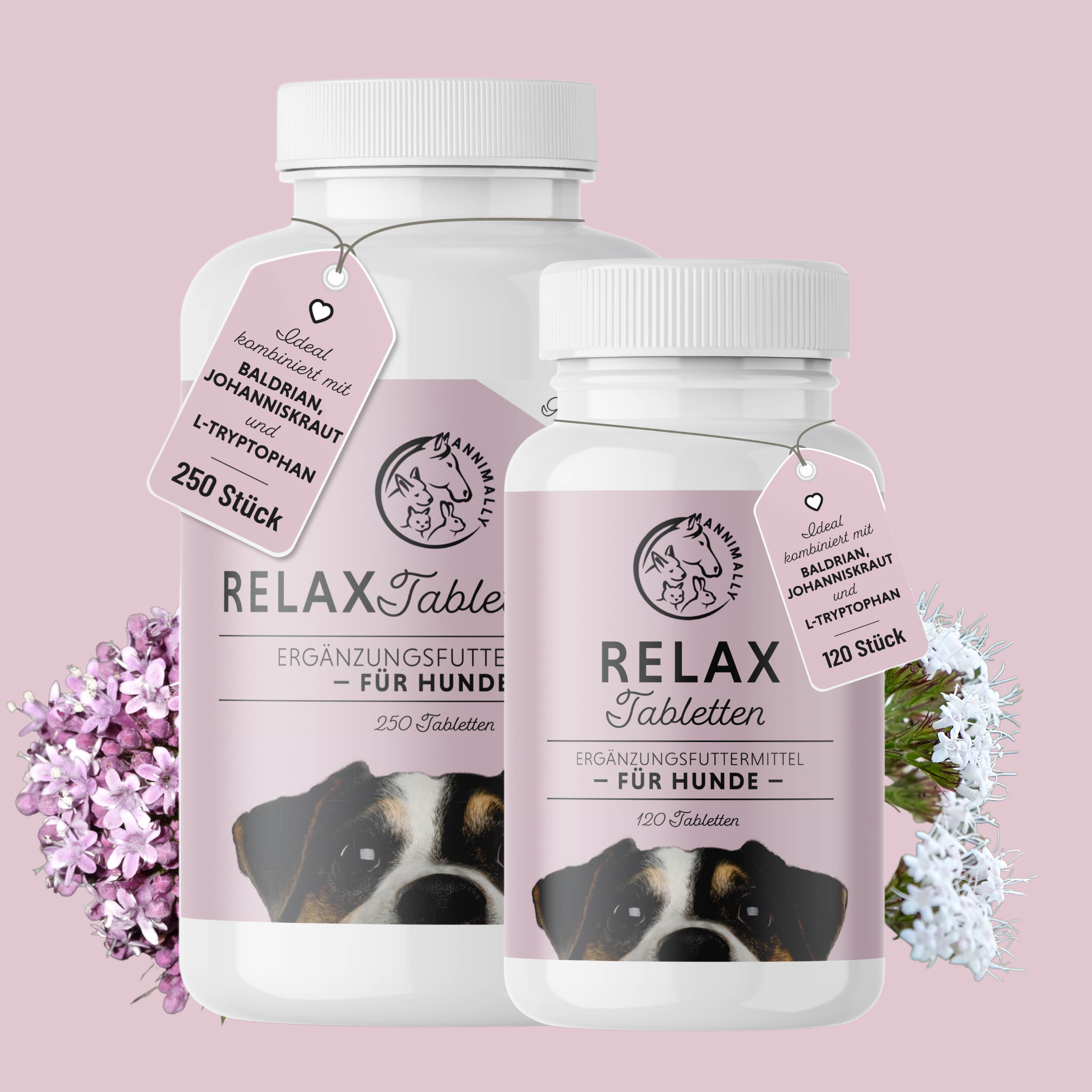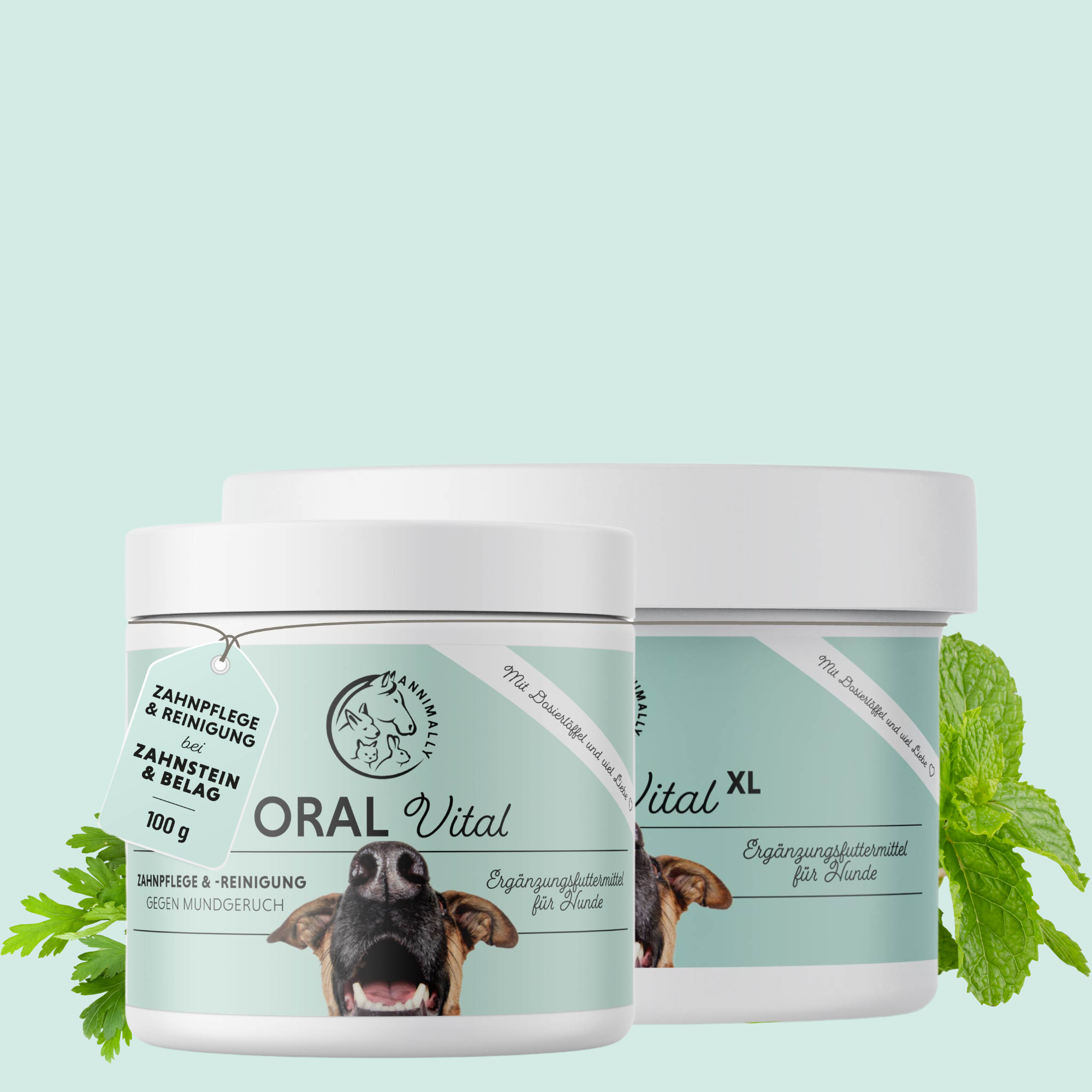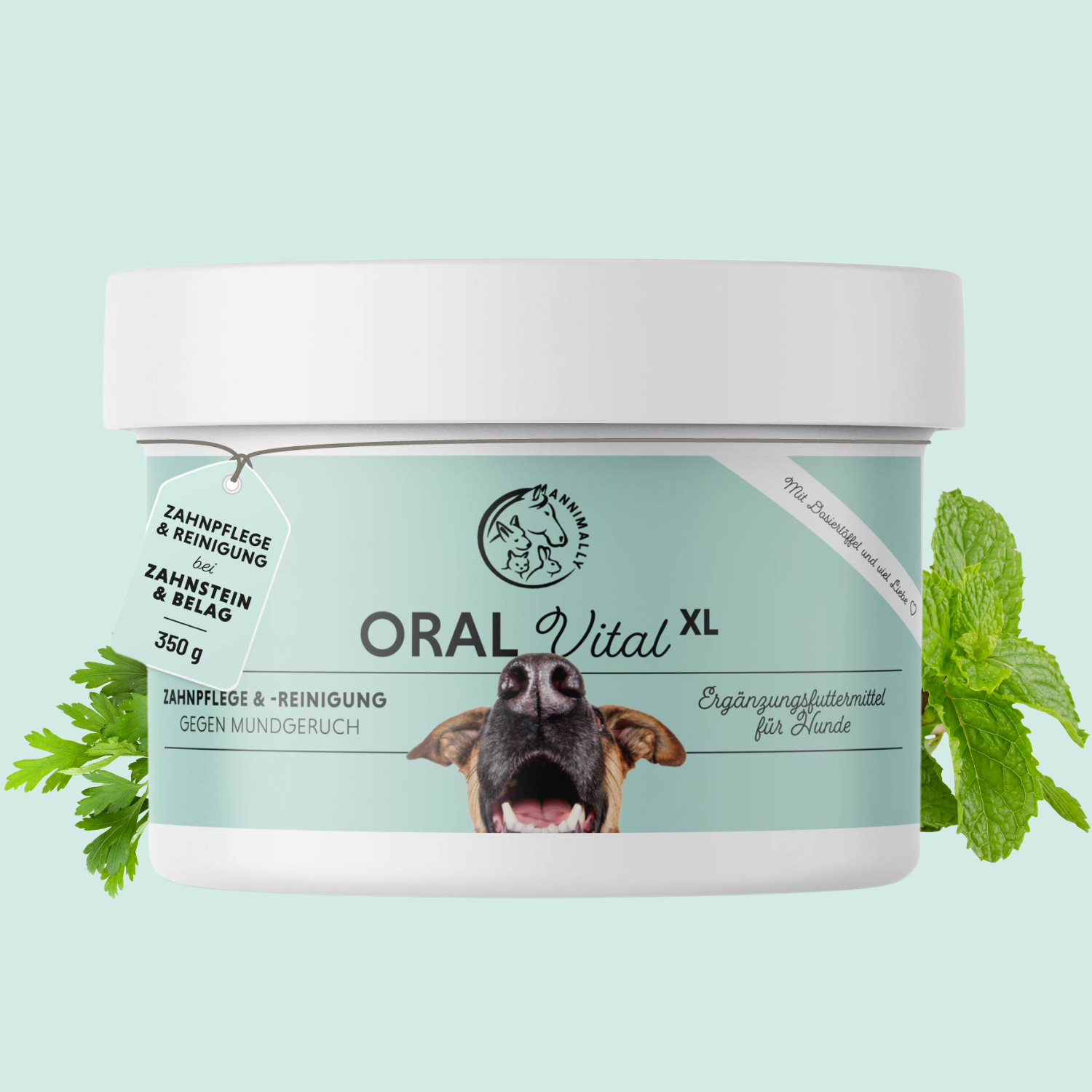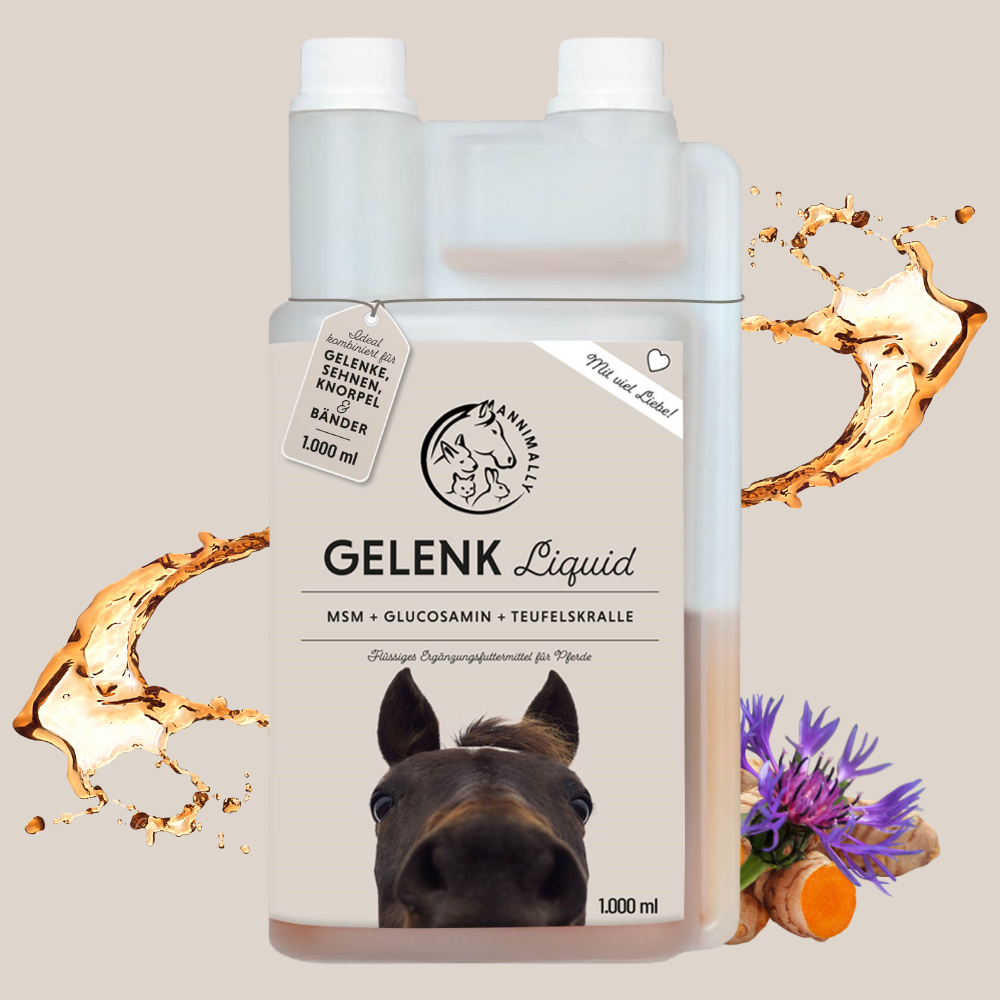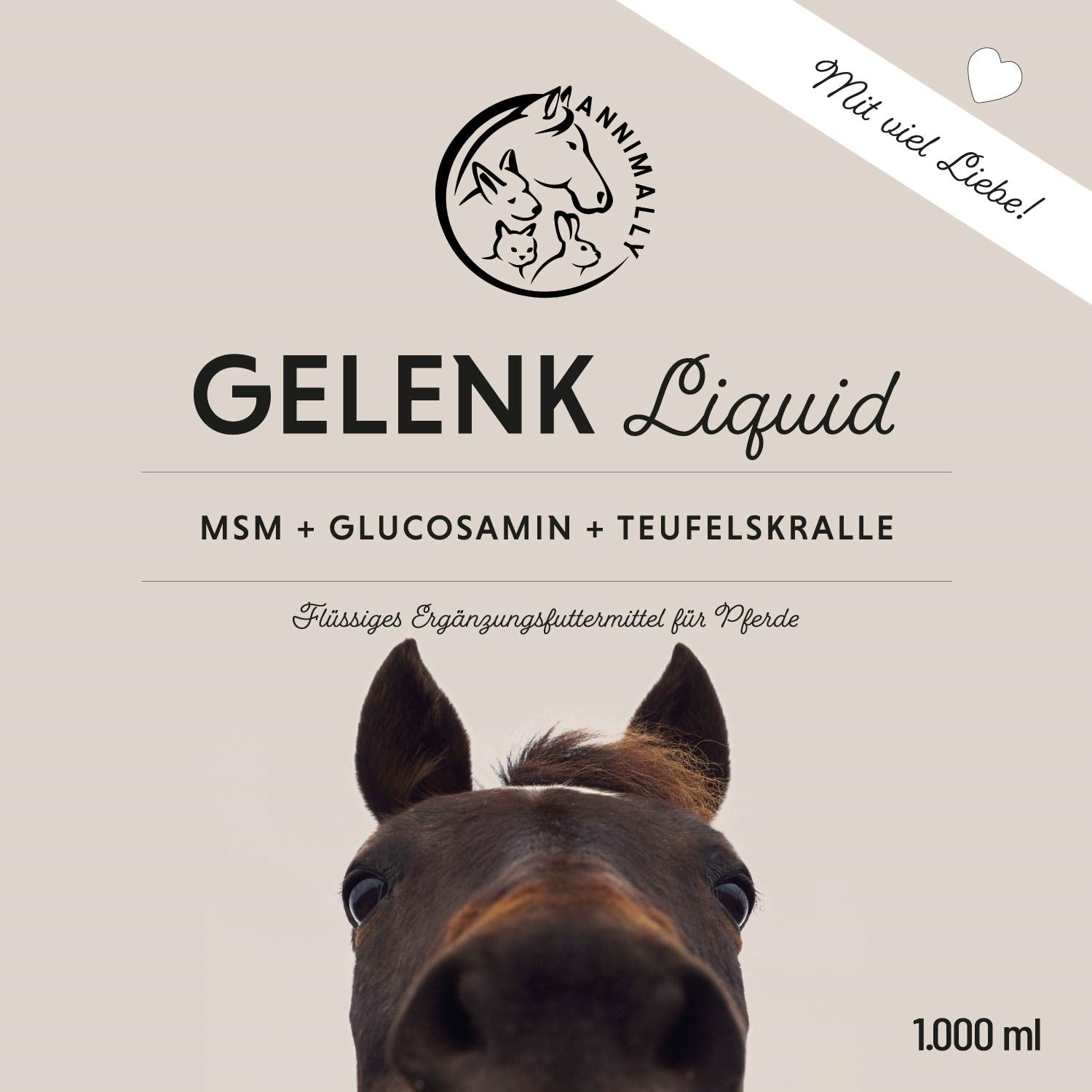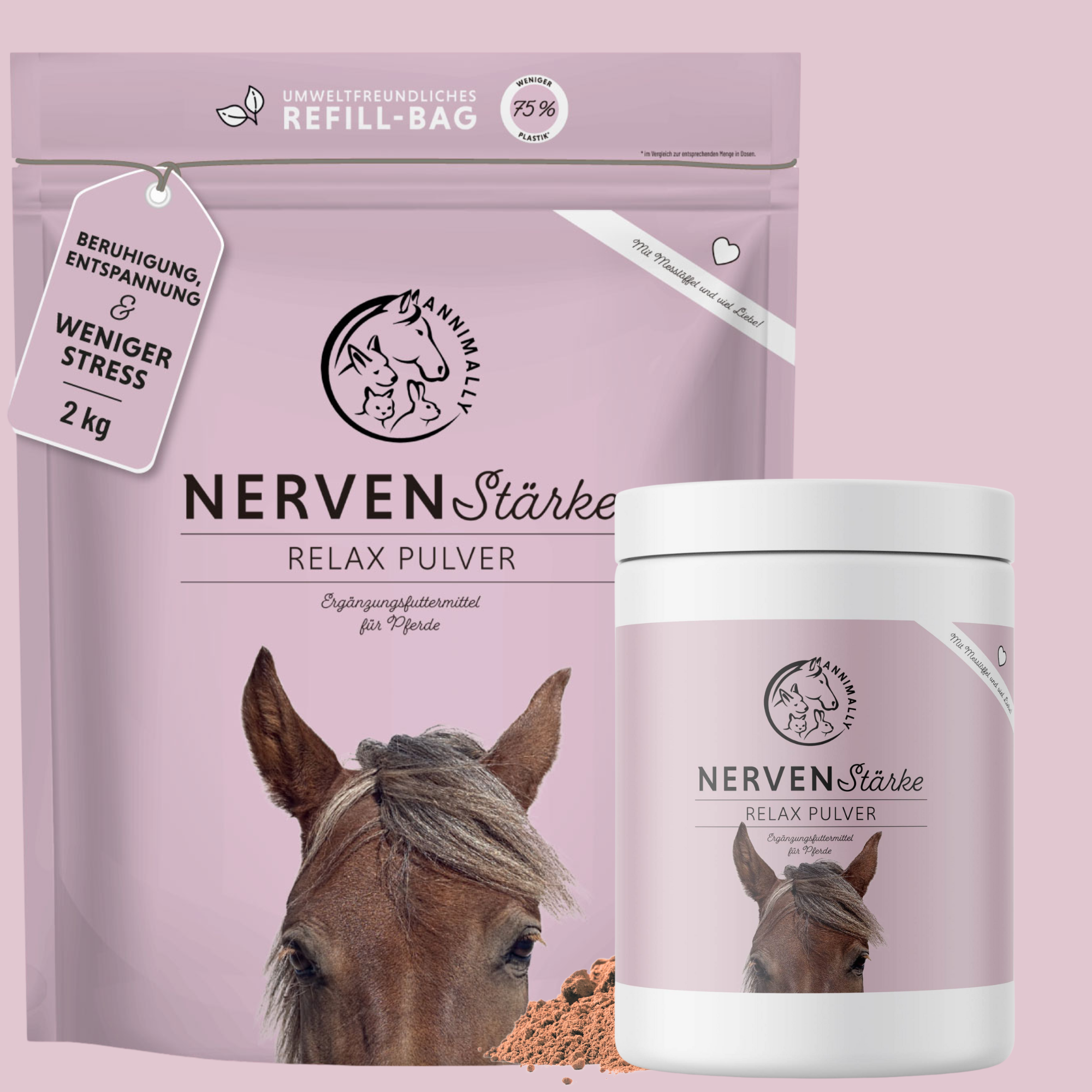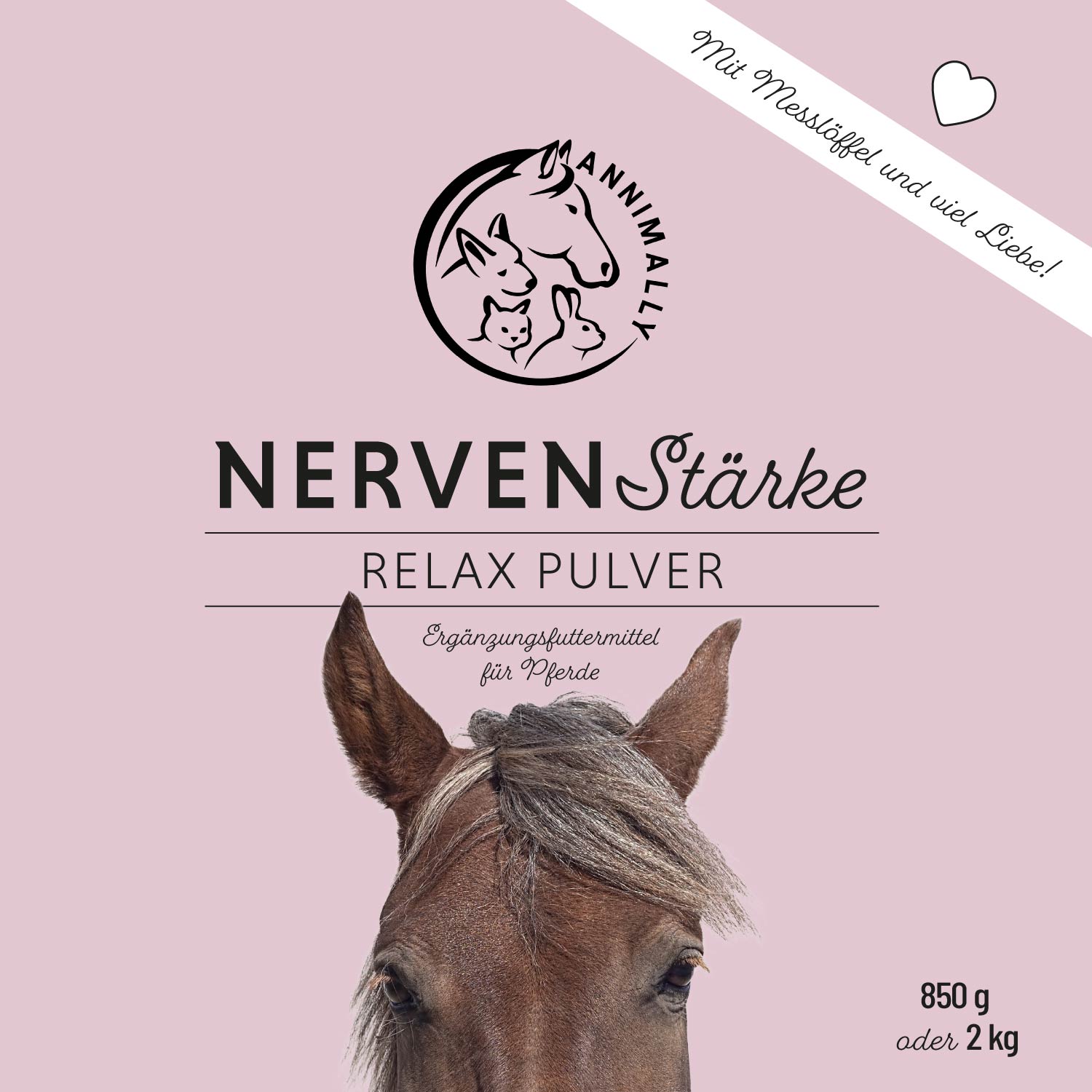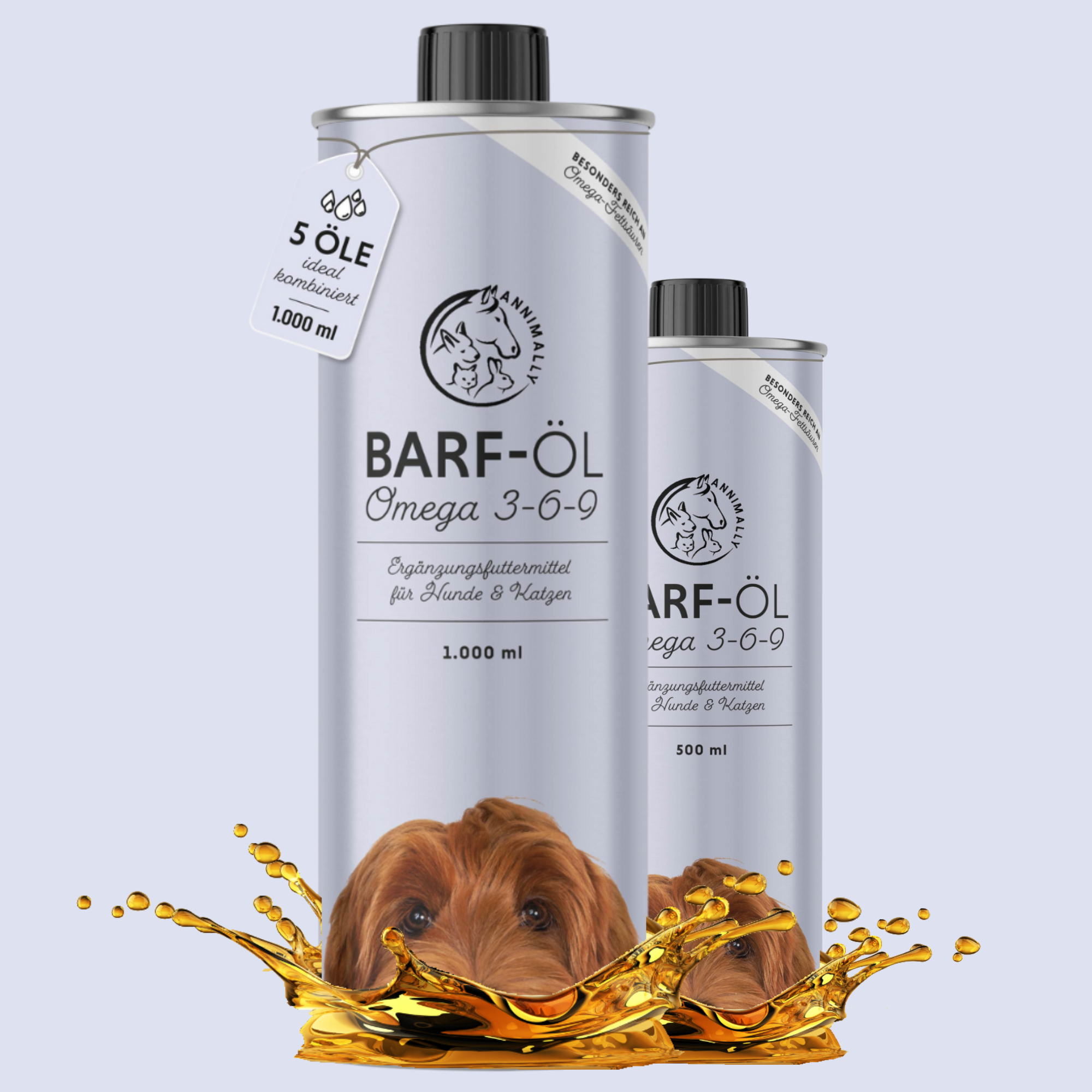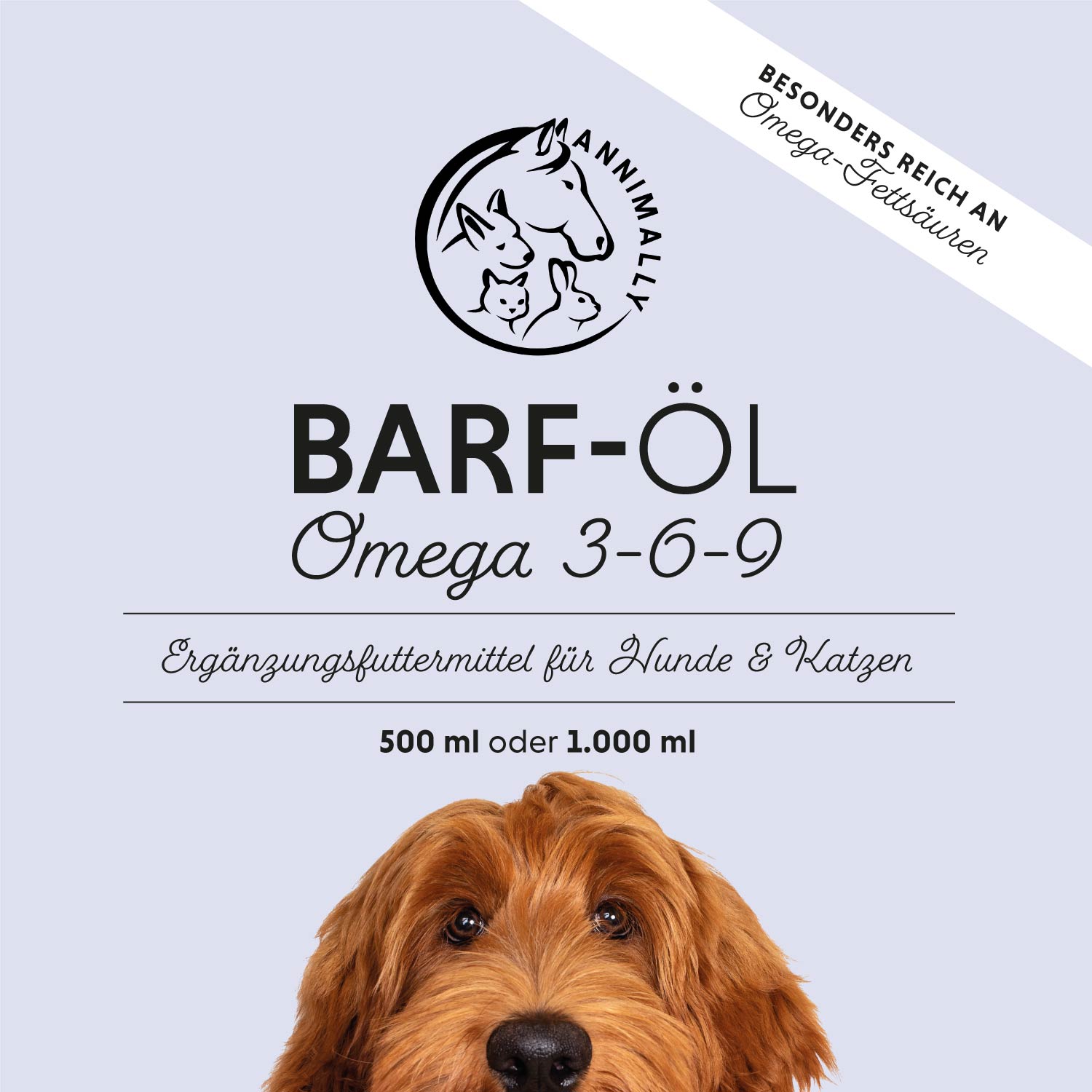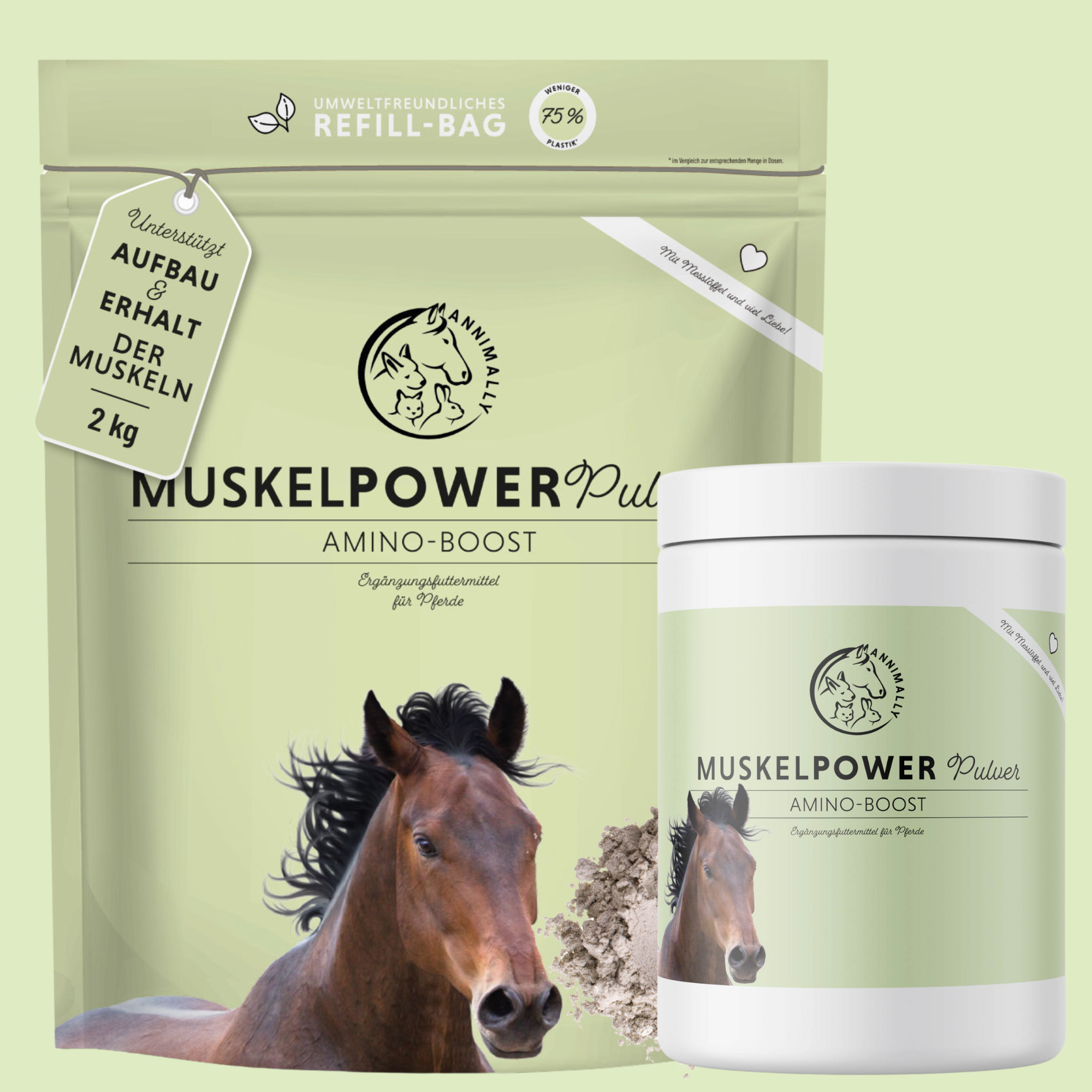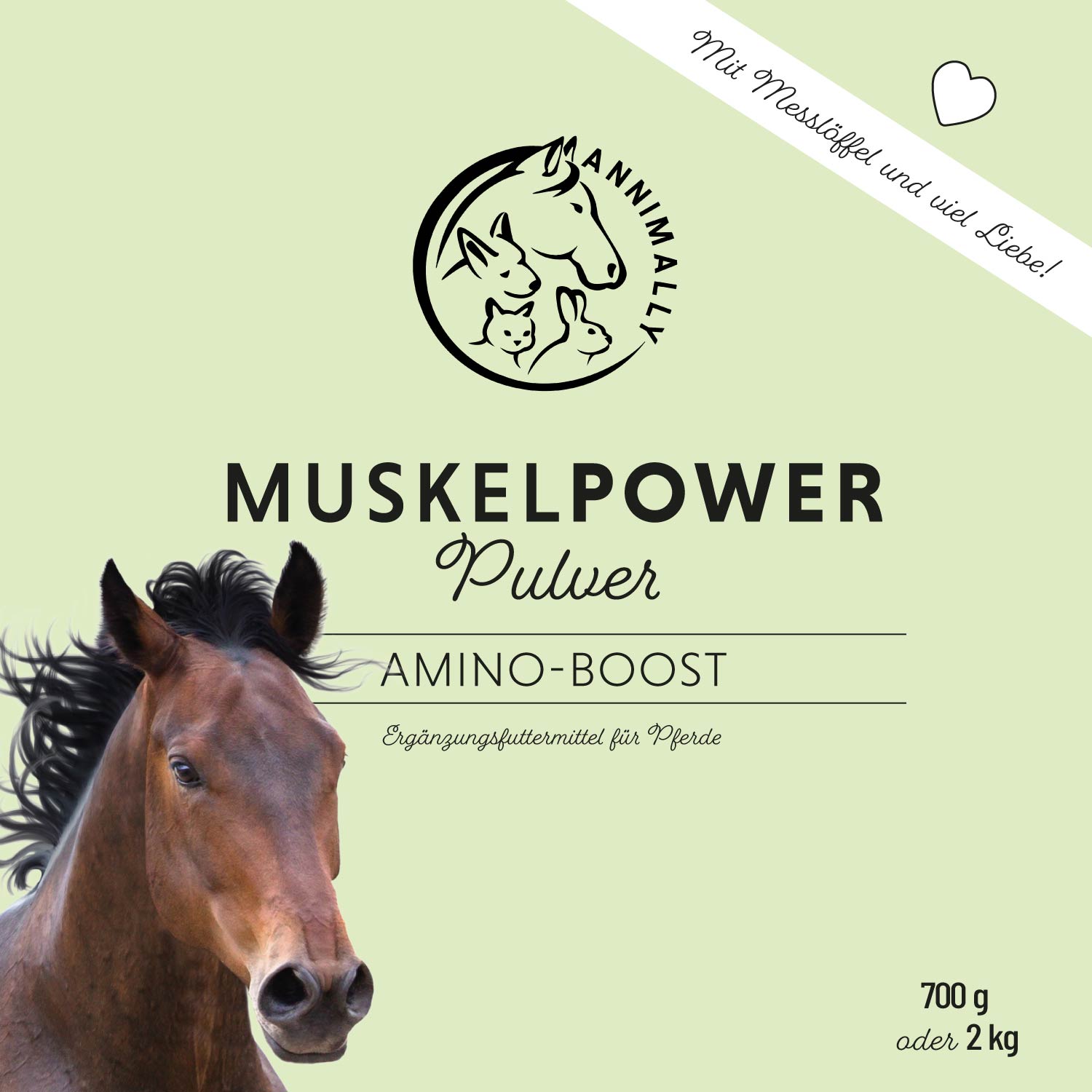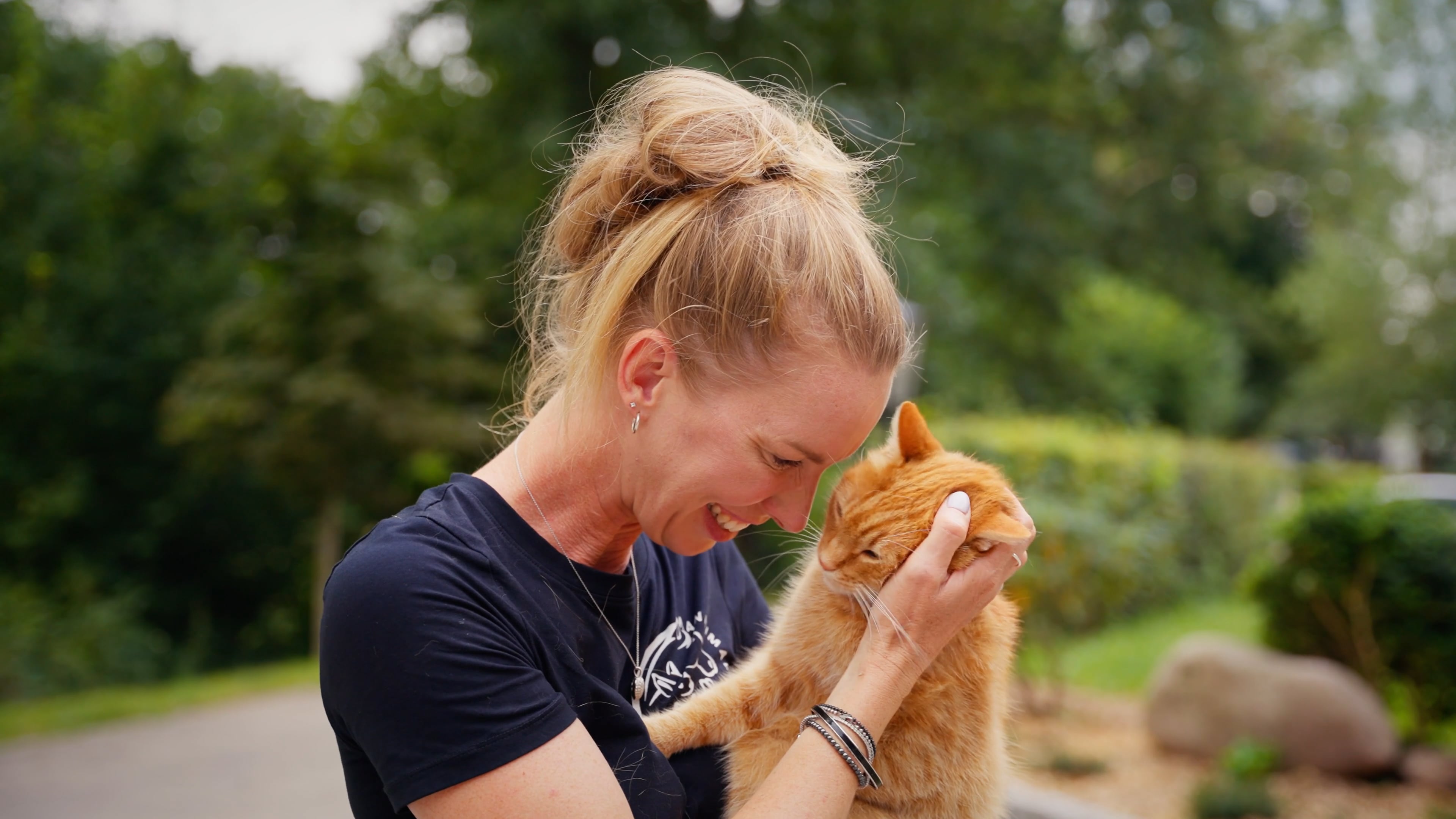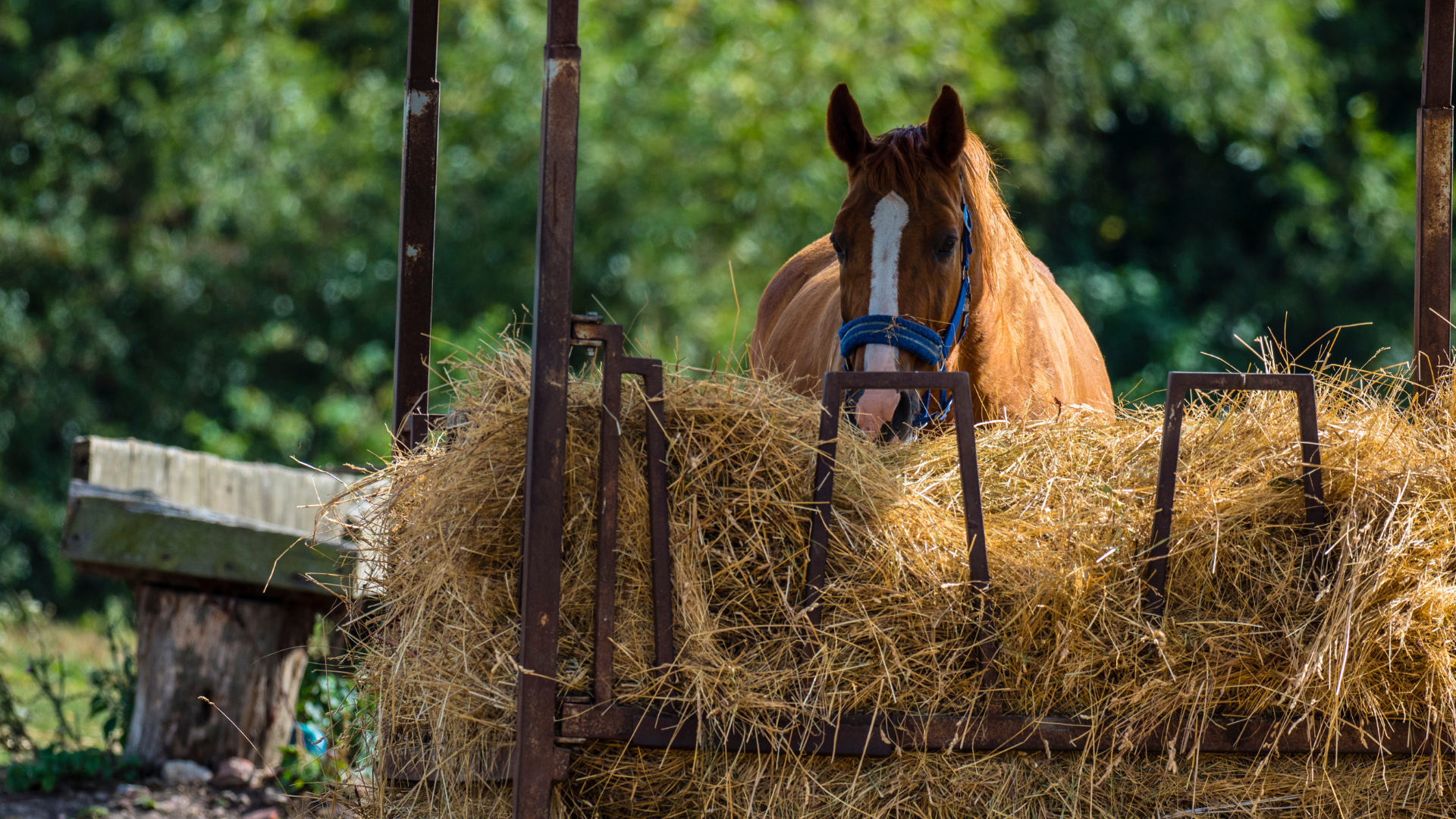
Detect and avoid nutrient deficiencies when feeding your horse grain-free
Feeding is the most important foundation for your horse's health and well-being. More and more horse owners are opting for grain-free feeding. There are many reasons for this: digestive problems, obesity, metabolic disorders, or simply the desire for a horse feed that's as close to nature as possible.
But as beneficial as a grain-free diet can be, it also carries risks. If important nutrients are missing, the horse can develop nutritional deficiencies. The consequences are diverse: from skin problems to weak muscles to serious illnesses.
In this article, you'll learn everything you need to know about a horse's nutritional needs, the role of mineral feed and supplementary feed, how to recognize typical deficiency symptoms, and what solutions are available.
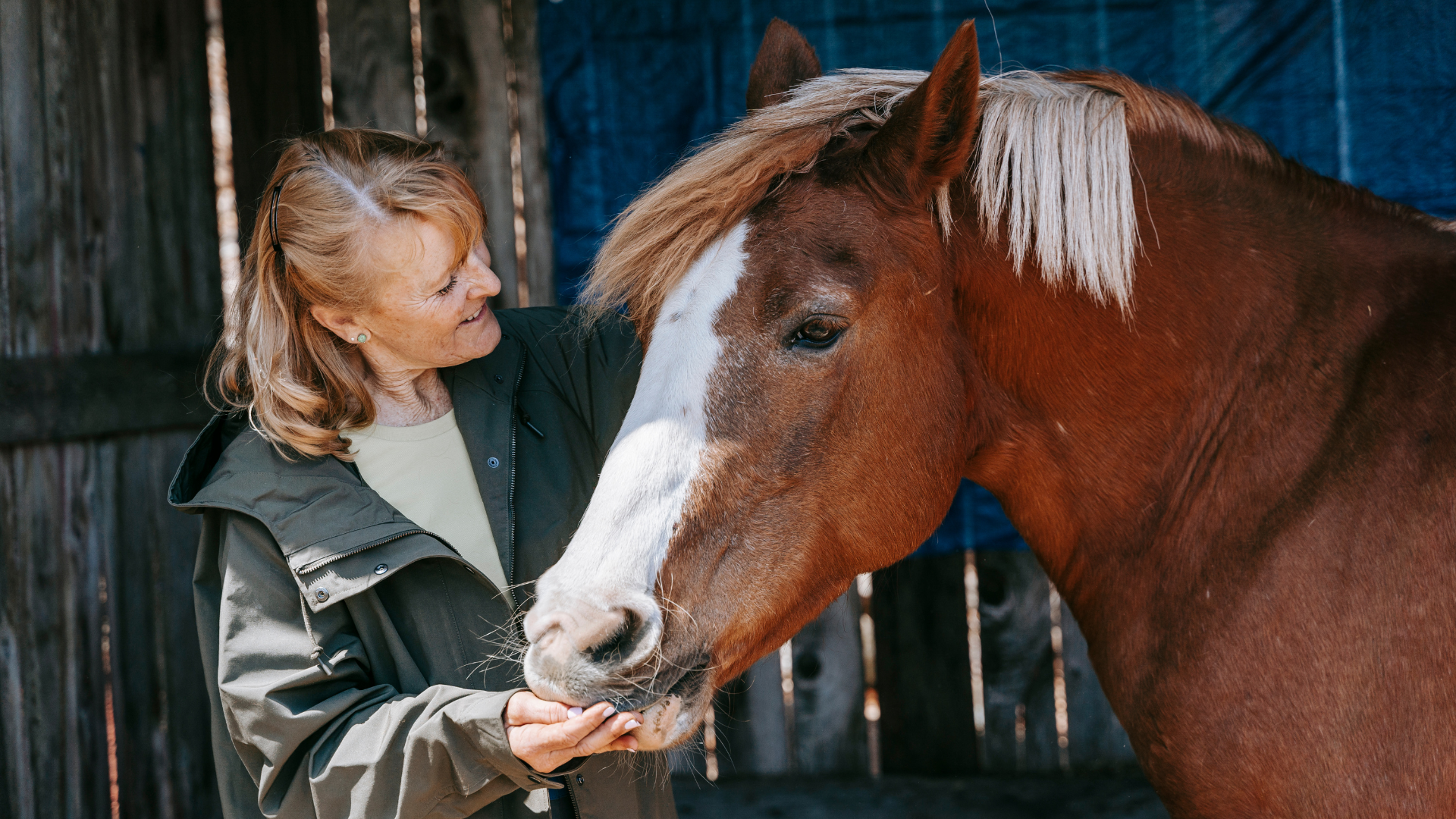
Why are more and more horse owners opting for grain-free feeding for their horses?
Grain has long played a major role in traditional horse feeding—primarily as an energy source in the form of concentrate feed. However, not every horse tolerates grain equally well. Problems such as a sensitive stomach, digestive disorders, or metabolic disorders have prompted many owners to consider alternatives for their horses.
Grain-free feed can be particularly beneficial for robust breeds, leisure horses, or horses with low energy requirements. Roughage such as hay and grass then forms the basis of the diet, supplemented by minerals and trace elements.
But this is precisely where the challenge lies: While hay covers the basis of a horse's basic nutrition, it often lacks important ingredients that cannot be sufficiently provided through the basic feed alone.
Nutritional requirements of horses – the basis of every feeding
To avoid nutrient deficiencies in your horse, it's important to understand your horse's actual nutritional needs. These depend on many factors:
-
Body weight – A heavy warmblood has different needs than a delicate pony.
-
Old – Foals, young horses and seniors have special needs.
-
Performance level – Leisure horses with a maintenance metabolism need less energy and protein than sport horses with high workload.
-
health – Metabolic problems, stomach sensitivity or existing diseases affect the supply.
-
Housing conditions – In the winter months, when fresh grass is lacking, the need for supplementary feed increases.
The basis of any feeding is basic forage in the form of roughage—that is, hay, straw, and possibly silage. However, in most cases, this alone is not enough to fully meet nutritional needs.
Important nutrients for horses – where can deficiencies arise?
When feeding grain-free, it is particularly important to focus on minerals, vitamins and trace elements.
Energy and protein
Grain normally provides a lot of energy. If it is omitted, the energy needs must be met from other sources such as hay, oil, or protein-rich feed. Caution is advised here: Too much protein can strain your horse's metabolism, while too little leads to muscle problems and a loss of body mass.
Minerals and trace elements
Minerals play a central role in horse nutrition. Particularly critical are:
-
Zinc : A zinc deficiency often manifests itself in skin problems, dull coat and increased susceptibility to infections.
-
Selenium : A vital trace element that can easily be overdosed. It supports muscles, metabolism, and the immune system.
-
Calcium & Phosphorus : These minerals are important for bones and teeth. The right ratio is crucial.
Vitamins
-
Vitamin A is important for the skin, eyes, and immune system. A deficiency occurs especially in the winter months when fresh green fodder is scarce.
-
Vitamin E Supports muscle function and cell protection. Horses in training or with muscle problems especially benefit from adequate nutrition.
-
Vitamin C is usually produced by the horse itself, but supplementation can be useful during periods of stress or illness.
-
B vitamins play a role in energy metabolism and are important for the nerves, digestive system and skin.
Typical signs of nutrient deficiency in horses
A nutrient deficiency often goes unnoticed for a long time. Horse owners should therefore be aware of the following symptoms:
Fur and skin
The coat appears dull, loses its natural shine, and may appear shaggy. Skin problems such as dandruff or minor eczema are also possible signs.
muscles
The horse builds muscle more slowly or loses existing muscle mass. Some animals show tension or appear stiff in their movements.
Performance and energy
Your horse appears to tire more quickly, less resilient, and generally lacking in motivation. A significant reduction in performance during training or in everyday life is also a typical symptom.
digestion
A sensitive digestive system manifests itself through diarrhea, flatulence, or even recurring constipation. Such problems can be exacerbated by a lack of vital nutrients.
Weight
Despite adequate feed, the horse loses weight or has difficulty gaining body mass. Conversely, the horse's figure may appear soft due to a lack of muscle.
hooves
Brittle, cracked or poorly growing hooves often indicate a deficiency in zinc or other trace elements.
Your horse's behavior
Some horses react unusually nervously, irritably, or, on the contrary, display a noticeable lack of motivation. They may also experience difficulty concentrating.
It's important to remember that a deficiency isn't always easy to attribute to a specific cause. Often, it's a combination of different nutrients that are out of balance.
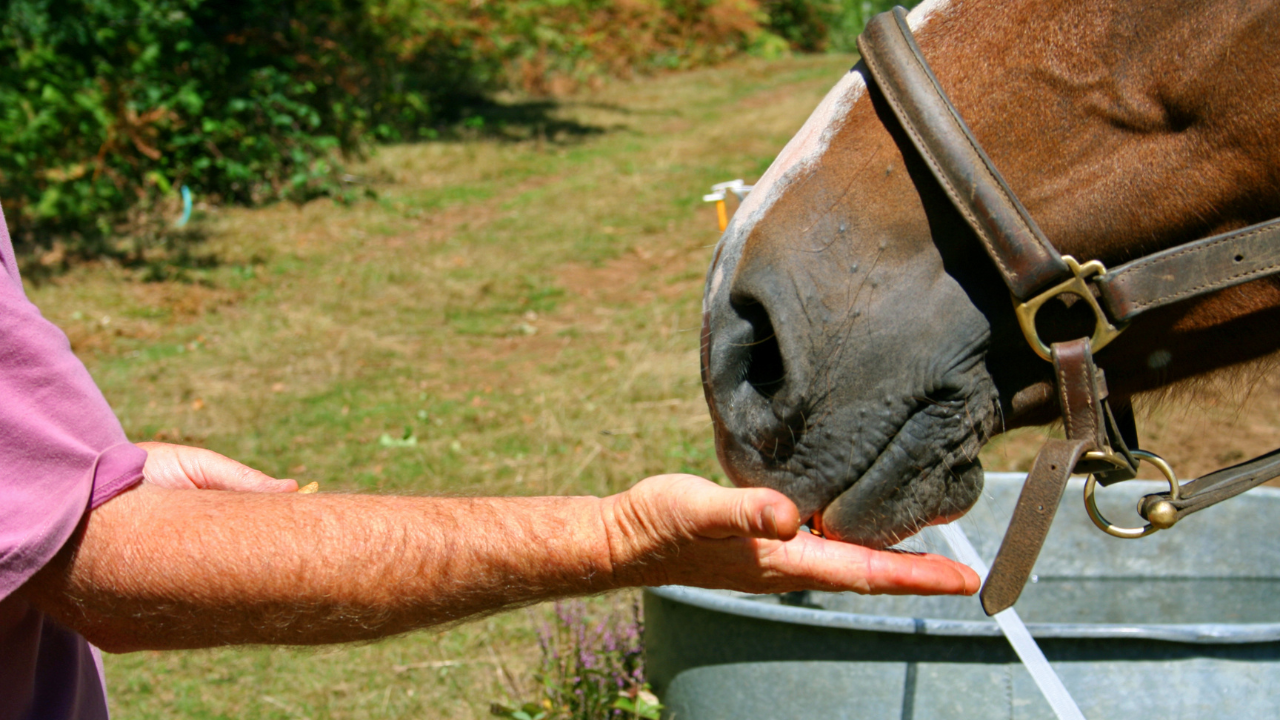
The role of mineral feed and supplementary feed in horses
Mineral feed forms the basis for balancing a grain-free ration. It ensures that trace elements, vitamins, and minerals are consumed in the correct amounts. Hay provides the basic energy and crude fiber requirements, but is often low in zinc, selenium, or vitamin A.
Supplemental feed for horses offers a valuable solution here. They can be individually tailored to your horse's needs – be it for muscle health, digestion, or skin. Targeted supplementation is particularly useful in winter, when vital nutrients from fresh grass are lacking.
Planning grain-free horse feeding correctly – tips for horse owners
To prevent a horse from becoming deficient when fed grain-free, you should consider the following points:
-
Check the ration : The basis is a balanced roughage ration. Hay should be measured according to body weight (approximately 1.5–2 kg per 100 kg body weight).
-
Use mineral feed : Adjust the supplement to the ingredients of the forage. A hay analysis is sometimes worthwhile.
-
Meeting energy needs : Horses with higher performance requirements need additional energy sources such as oils or protein-rich feed.
-
Support digestion : Supplements with herbs, prebiotics, or B vitamins can help stabilize the digestive system.
-
Pay attention to deficiencies : coat, skin, muscles and weight provide important information about the nutritional situation.
-
Ask questions : If in doubt, consult an expert to find the right feeding solution.
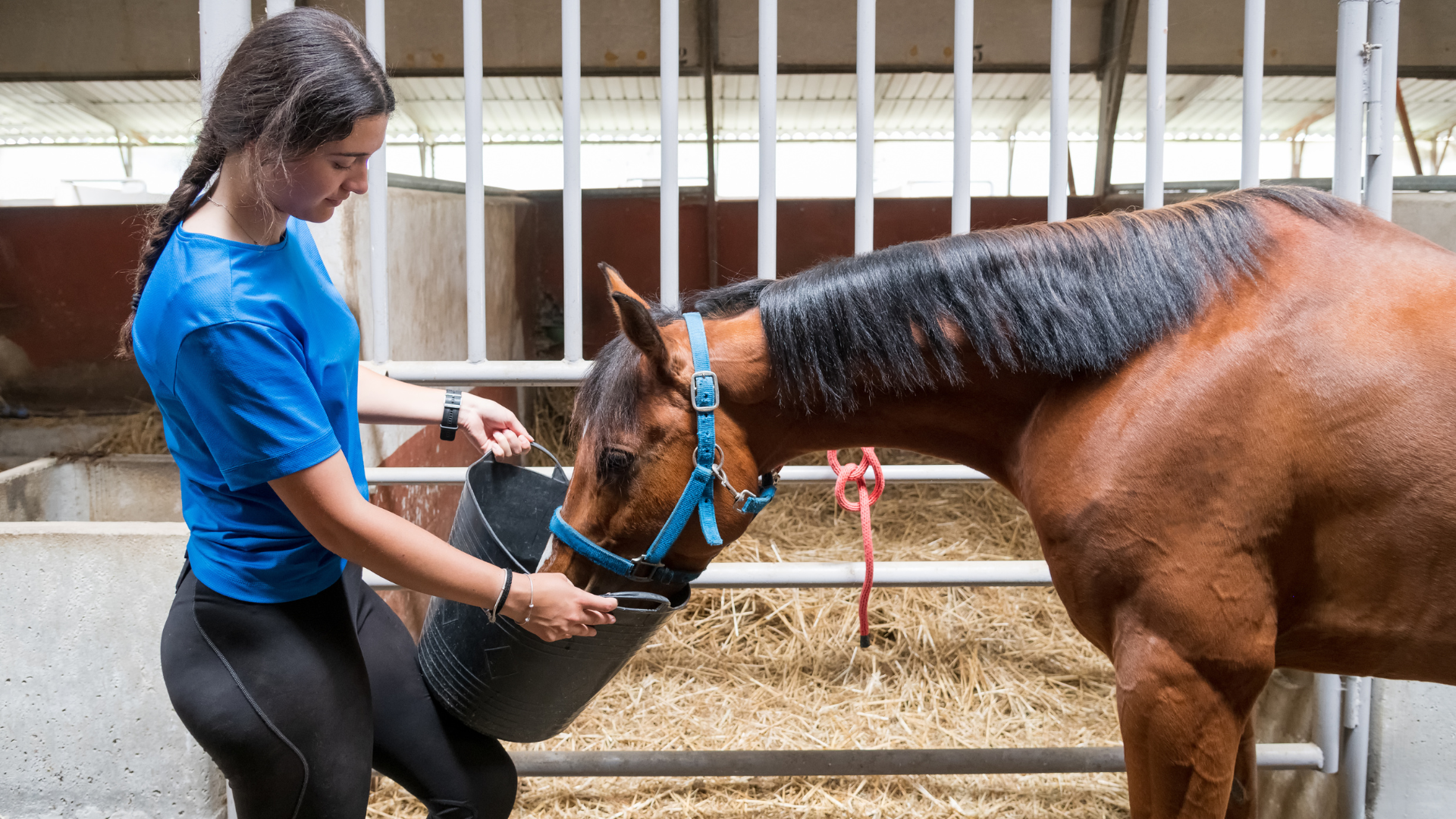
Special features in the winter months
During the winter months, the fresh greens that normally provide many vitamins and minerals are lacking. This significantly increases the risk of nutrient deficiencies. Vitamin A, vitamin E, and zinc are among the most critical nutrients. Therefore, it is especially important to use mineral feed and supplements during this time of year.
Conclusion: Avoid nutrient deficiencies with grain-free horse feeding
A grain-free diet can be the right solution for many horses—especially if they have digestive, stomach, or metabolic problems. However, the foundation for healthy horse nutrition always remains a needs-based supply of energy, protein, minerals, and vitamins.
You should be aware that hay alone doesn't provide all the nutrients your horse needs. Mineral feed, supplements, and a tailored ration are crucial to preventing deficiencies in your horse. This will keep your horse ready to perform, healthy, and full of energy—whether with or without grain.
